Greek Archaeology in Crisis
For the past few months the Greeks have been the target of many demeaning jokes across the European Union. The near-bankruptcy of Greece caused the indignation of our European ‘Allies’, because of the fear that they will have to pay for my country’s alleged bailout. We have been called many things: disorganized, irresponsible, crooks, swindlers, fraudsters, cheaters. The image they forged for us hurts!
My new identity as a fraudster is impossible to swallow or accept without protest. I have been abroad for the good part of the past fourteen years in an attempt to serve the discipline of history to the best of my abilities. I consider myself in voluntary exile, as I reside away from the people I love the most. Whether I was in Ireland, Italy, England or Germany, I always longed for the strong Greek sun, the unpredictability of our seas, the understanding of my family. And yet, I chose to stay away, not because I wanted to build an illustrious career but because I wanted to live with some dignity. I knew what my fate would have been, if I stayed in Athens. Apart from a few lucky exceptions, most of my friends have been suffering a life of extreme poverty, even by academic standards. Do not get me wrong. They are all highly educated, as they speak 3-4 languages, they hold MAs or PhDs from the best universities, they publish their own research and they have a general knowledge that many would be jealous of. Despite their qualifications, they do not have a stable job. Many work as private tutors for high school kids. Others get the occasional 6-month archaeology contract to work hundreds of miles away from home. In the meantime, they stay with their parents (even though they approach their fortieth birthday), since they cannot afford to pay for their own rent. In view of the latest developments in the Greek economy, I started wondering how many of them swindled the Greek State or the European Union for profit. Obviously, none!
Where are the culprits, then? Who spent the money? Who led the country into bankruptcy? Last night I have been watching a Chardavellas documentary. For those who do not know him, he is a journalist, who specializes on paranormal phenomena (!). Unlike his usual topics of astral projections, psychic abilities and life after death, he surprised us all by uncovering the truth for the condition of the tombs of the warriors of Salamis. As most of you know, Salamis is the island where the Greek city-states stopped the Asian forces, before they managed to conquer the entire Europe in 480 BC. Effectively, they altered the route of history. The modern Greek government initially declared the site, where the tombs of the Salaminomachoi lie, as a protected archaeological area. In theory, this is a sacred place. In practice, for the past twenty years it became the theater of a new battle; a battle between the local citizens and the powerful shipbuilding companies, one of which belonged to the family of Karamanli (politicians who defined Greek politics from the end of the civil war until today). Chardavellas last night presented us with a grim picture of decaying boats, rubbish and polluted waters on the archaeological site. Then, he unveiled the web of corruption and bribery that underlines the situation. Apparently, the Greek State spent millions of the taxpayers’ money in order to sustain and promote the use of the site as a shipbuilding yard, despite the protests of the locals. At another time, the Ministry of Culture even ordered the police forces to demolish the (90,000 euro) monument that celebrated the battle of Salamis. The locals, in vain, clashed with the police.
With this example I would like to set things straight. You should not look among the majority of Greek citizens for the culprits of the current economic crisis. The perpetrators are the politicians and the affluent who took advantage of the dysfunctional system in order to achieve unprecedented profits. The Greek citizens never consented to this situation. In fact, Konstantinos Karamanlis (Greece’s prime minister until last October) was voted into power 6 years ago because he claimed that he would fight against corruption. The results of his policies are only too obvious!

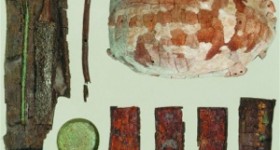
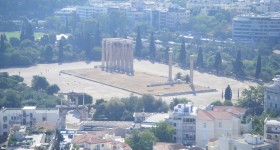
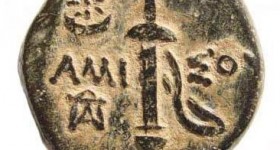
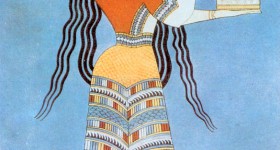
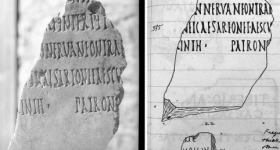
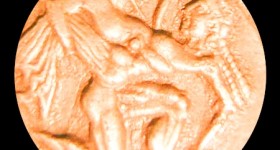

Yes, they do call us disorganised, fraudsters etc. No, not all of these accusations are true. They are about some Greeks, but not about the majority. But we ARE disorganised. Pretty much all of us.
Let me tell you a joke about this characteristic. A guy dies and goes to hell. The devil tells him that hell is divided into countries and that he can choose any country’s hell to live in. The guy visits the English hell, and finds out that people there have to swim all day long in a big pool of… excrement! He says “no thanks” and visits the German hell. Unfortunately, there too he learns that he will have to swim in the same pool. Finally he visits the Greek hell, where everyone is singing and having a great time. He asks someone “What’s going on here? Don’t you have to swim in a pool full of excrement?” And the other guy replies: “Well, you know how it is in Greece. The government keeps forgetting to fill the pool up!”
Constantina, I believe this joke could also apply to archaeology, only without the excrement part…